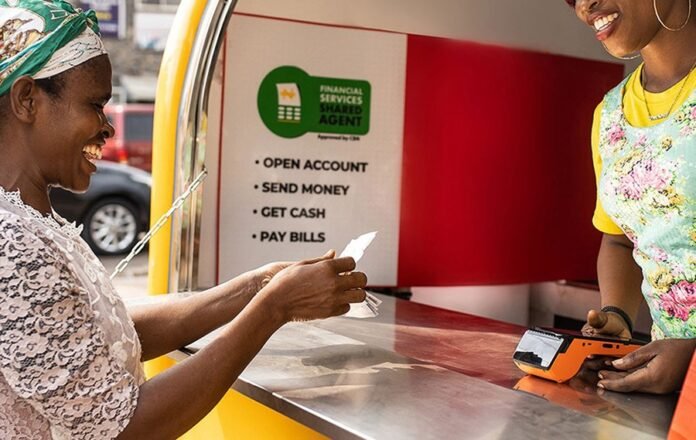From dusty markets to smartphones, Ghana’s rural landscape is witnessing a silent revolution. No longer are cash-strapped farmers or remote villagers bound by the limitations of traditional financial systems. Enter mobile money, a game-changer not just for sending and receiving but for transforming lives in unexpected ways.
Forget clunky bank branches and long queues. Imagine tapping your phone to access microloans for a seedbed, saving every cedi for your child’s education, or even insuring your prized livestock against a harsh season. This is the reality for millions of Ghanaians, thanks to the booming mobile money ecosystem.
But beyond the convenience, mobile money is weaving a new social fabric in rural communities. Women find newfound financial independence, businesses flourish with cashless transactions, and healthcare reaches areas once overlooked. In this article, we’ll unlock the five unexpected ways mobile money is impacting lives in Ghana, highlighting the stories of its everyday heroes and the challenges that still lie ahead.
Dive with us into this digital revolution, where every tap on a phone signifies a step towards a more inclusive, empowered, and prosperous future for rural Ghana.
Beyond Transactions: Mobile Money in Ghana as a Gateway to Financial Services
Gone are the days when cash was king in Ghana. Today, tucked away in the pockets of farmers, market traders, and everyday citizens lies a powerful tool for financial empowerment: the mobile money wallet.
ALSO READ: 5 Reasons Why Every Nigerian Needs a Virtual Dollar Card
While its initial appeal lay in convenient money transfers, the Ghanaian mobile money ecosystem has blossomed into a vibrant haven for accessing financial services that were once out of reach, particularly in rural areas.
Let’s delve into three unexpected ways mobile money is revolutionizing access to microloans, safe savings, and affordable insurance, transforming lives from the ground up.
A. Microloans in Your Pocket:
Forget the days of navigating complex paperwork and physical bank visits. Fintech startups have harnessed the power of mobile data and algorithms to assess creditworthiness and make microloans accessible through user-friendly apps.
Imagine Abena, a small-scale farmer, simply tapping her phone to secure a loan for new seeds or fertilizer. This newfound access to capital is fueling entrepreneurial dreams, allowing countless Ghanaians like Abena to expand their businesses, invest in their farms, and break free from the cycle of poverty.
However, this microloan revolution isn’t without its challenges. The potential for over-indebtedness and predatory lending practices lurks in the shadows, demanding responsible lending practices and financial literacy initiatives to ensure sustainable prosperity.
B. Savings at Your Fingertips:
Gone are the days of hiding cash under mattresses or entrusting it to unreliable sources. Mobile money wallets offer a safe and secure haven for savings, fostering a culture of financial planning and resilience in rural communities.
Kwame, a young carpenter, meticulously deposits a portion of his income each week, building a safety net for unexpected expenses or saving for his son’s education. These digital saving buckets offer low barriers to entry and instant access, empowering individuals to take control of their financial future.
Yet, hurdles remain. Low interest rates in some mobile savings plans might discourage long-term saving, while digital literacy gaps can hinder full adoption. Addressing these issues will be crucial to maximizing the potential of mobile savings for financial security.
C. Insurance Within Reach:
Imagine the anxiety of a single storm jeopardizing a farmer’s entire livelihood. Imagine the comfort of insurance accessible through a few taps on their phone. This is the reality brought to life by micro-insurance products offered through mobile platforms.
With affordable premiums tailored to their needs, farmers like Ama can protect their crops against weather perils, while families can safeguard their health through micro-health insurance. This newfound access to financial protection is a game-changer, providing peace of mind and resilience in the face of unforeseen circumstances.
However, limited product awareness and complex claims processes can pose challenges. Expanding outreach programs and simplifying claim procedures will be essential to ensuring everyone benefits from this safety net.
By stepping beyond simple transactions, mobile money is weaving a new social fabric of financial inclusion in Ghana. From microloans powering entrepreneurial dreams to savings accounts nurturing financial security, these unexpected services are transforming lives across the nation.
Yet, acknowledging the challenges and continuously working towards responsible lending, accessible savings, and inclusive insurance will be key to unlocking the full potential of this digital revolution and ensuring every Ghanaian has a chance to thrive in the age of mobile money.
ALSO READ: Loan Apps in Nigeria: Your 2024 Guide to Borrowing Smarter (and Safer)
Beyond Individuals: Mobile Money’s Impact on Rural Life

Mobile money in Ghana isn’t just about individual wallets; it’s weaving itself into the fabric of rural life, fostering community growth and economic progress. Let’s explore three key areas where its impact extends beyond personal transactions:
A. Empowering Women:

Previously marginalized, women in rural areas are finding economic power through mobile money. They’re running small businesses, managing household finances, and accessing microloans to launch poultry farms or shea butter cooperatives.
Mercy, a farmer in Ashanti, used her mobile money savings to invest in fertilizer, increasing her crop yields and income. These women are no longer invisible in the economic landscape; they’re driving change and inspiring others.
However, gender disparities in access remain. Mobile literacy campaigns and affordable smartphone initiatives are crucial to ensuring all women participate in this digital revolution.
B. Boosting Local Businesses:
Gone are the days of relying on barter or carrying cash over long distances. Mobile money has transformed rural markets. Stall owners like Kwame in the Eastern Region now accept cashless payments, attracting a wider customer base and expanding their businesses.
Farmers can receive instant payments for their crops, eliminating middlemen and improving their profit margins. This cashless ecosystem fosters trust and transparency, encouraging entrepreneurship and local economic growth.
Of course, challenges persist. Limited internet connectivity in remote areas hinders mobile transactions, and some businesses lack the necessary equipment. Infrastructure development and digital training programs are needed to fully unlock the potential of mobile money for rural businesses.
C. Driving Education and Healthcare:
Mobile money is bridging the gap between rural communities and essential services. Parents can now pay school fees directly on their phones, ensuring uninterrupted education for their children.
Village clinics equipped with mobile money payment systems are seeing increased healthcare access, as patients can afford consultations and medications without the hurdle of cash shortages. This improved access to education and healthcare paves the way for a healthier, more educated future for rural generations.
Despite these advancements, challenges remain. Mobile literacy training for older generations is crucial for them to navigate healthcare and education platforms. Additionally, ensuring proper data security and privacy protection is essential in these online transactions.
By addressing these challenges and further expanding mobile money’s reach, we can witness an even more profound transformation of rural life in Ghana. This technology is not just about sending and receiving money; it’s about empowering communities, driving economic growth, and building a brighter future for all.
Conclusion:
From microloans fueling entrepreneurial dreams to microinsurance shielding families from unexpected storms, mobile money is weaving a powerful tapestry of financial resilience and opportunity in Ghana’s rural tapestry.
While challenges like digital literacy gaps and limited internet connectivity remain, the sheer momentum of innovation and adoption inspires optimism. Beyond mere transactions, mobile money is becoming a digital lifeline, unlocking doors to previously unimaginable possibilities for individuals and communities alike.
The journey towards total financial inclusion is far from over, but every mobile money transaction represents a tiny step towards a future where even the most remote corners of Ghana can thrive in the digital era.
With continued investment in infrastructure, partnerships, and education, Ghana has the potential to become a beacon of inclusive financial prosperity, showcasing the transformative power of mobile technology on a global stage.










